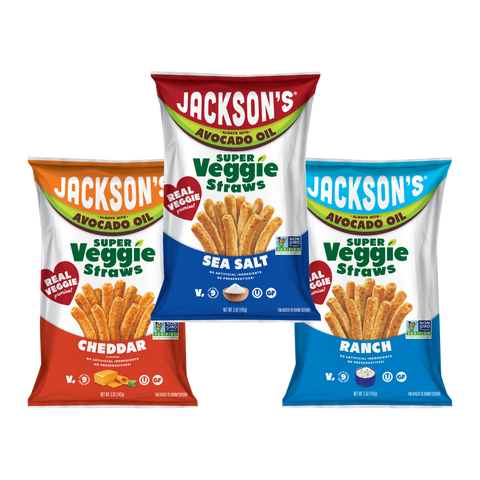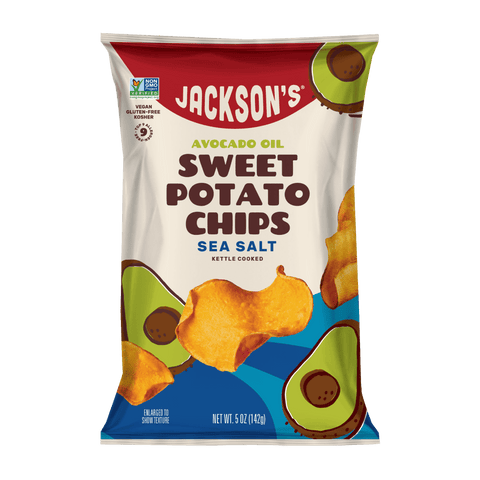Navigating Nutrition: The Lectin-Free Diet

The lectin-free diet has gained attention for its potential health benefits, but what exactly are lectins and why do some people choose to avoid them? In this article, we explore the science behind lectins and the reasons behind the interest in a lectin-free approach. From common sources of dietary lectins to the pros and cons of reducing lectins, we aim to provide a clear understanding of this dietary trend and its impact on health. Whether you're new to reduced lectin eating or looking to learn more, join us as we dive into the basics of this intriguing dietary philosophy.
What is a lectin-free diet?
A lectin-free diet is an eating plan that aims to eliminate or, more realistically, significantly reduce the consumption of foods containing lectins, which are a type of protein found in many plants. Lectins are known for their ability to bind to carbohydrates and are found in high amounts in grains, legumes, nightshade vegetables, and some fruits. Advocates of the lectin-free diet believe that consuming high levels of lectins may contribute to digestive issues, inflammation, and other health problems.
Therefore, followers of this diet typically focus on consuming foods that are low in lectins, such as leafy greens, cruciferous vegetables, nuts, seeds, and certain meats and fish. By avoiding lectin-rich foods, proponents of the diet claim to experience improvements in digestion, energy levels, and overall well-being. However, it's important to note that the scientific evidence supporting the benefits of a lectin-free diet is limited, and some critics argue that eliminating lectin-containing foods may also mean missing out on important nutrients and dietary diversity.
Lectin-Free Diet and Gut Health: Understanding the Link
The relationship between a lectin-free diet and gut health is increasingly scrutinized in nutrition research. Lectins, plant proteins found in various foods, are thought to affect gut health through multiple mechanisms. They can influence the balance of gut bacteria, compromise intestinal integrity, and promote inflammation. This disruption in gut function may contribute to various health issues.
For those considering a lectin-free diet, it's crucial to adopt strategies that support gut health. While eliminating lectin-containing foods is one approach, focusing on fiber-rich fruits and vegetables, fermented foods, and probiotics can nourish beneficial gut bacteria. Additionally, managing stress, regular exercise, and sufficient sleep are essential lifestyle factors that contribute to gut health.
Understanding the connection between lectins and gut health provides valuable insights into dietary choices and lifestyle habits that promote optimal digestive function and overall well-being. Further research is needed to fully grasp the impact of lectins on gut health and their role in disease prevention and management.
Why You Should Avoid Lectins
While some proponents advocate for avoiding lectins due to their potential negative effects on health, it's important to note that the scientific evidence supporting these claims is limited. Nonetheless, here are some reasons often cited for avoiding lectins:
Digestive Issues
Lectins are believed to interfere with the lining of the gut, potentially leading to digestive issues such as bloating, gas, and diarrhea. Some individuals with conditions like irritable bowel syndrome (IBS) or leaky gut syndrome may find that reducing lectin consumption helps alleviate their symptoms.
Inflammation
Lectins have been hypothesized to contribute to inflammation in the body by triggering an immune response. Chronic inflammation is associated with various health problems, including arthritis, heart disease, and autoimmune disorders. Avoiding lectins may be seen as a way to reduce inflammation and its associated risks.
Autoimmune Conditions
Certain lectins are thought to mimic the body's own cells, potentially leading to confusion within the immune system and triggering autoimmune reactions. Some people with autoimmune conditions, such as rheumatoid arthritis or lupus, may find that limiting lectin intake helps manage their symptoms.
Weight Management
Proponents of lectin-free diets suggest that lectins can interfere with hormones involved in appetite regulation and metabolism, leading to weight gain or difficulty in losing weight. By eliminating lectin-rich foods, some individuals believe they can better control their weight and improve their body composition.
Improved Nutrient Absorption
Lectins may bind to nutrients in food, making them less available for absorption by the body. By reducing lectin consumption, proponents argue that nutrient absorption can be optimized, leading to better overall health and well-being.
It's important to approach the topic of lectins with caution and skepticism, as scientific evidence supporting the benefits of a lectin-free diet is still emerging. Additionally, many lectin-containing foods are also rich sources of important nutrients, so eliminating them entirely may inadvertently lead to nutritional deficiencies if not carefully managed. As with any dietary change, it's advisable to consult with a healthcare professional or registered dietitian before making significant alterations to your eating habits.
Benefits of a Lectin-Free Diet
The benefits of a lectin-free diet are often linked to improved digestive health, reduced inflammation, and better management of specific health conditions. Supporters claim that cutting out or reducing lectins may ease digestive problems like bloating, gas, and diarrhea, especially for those with conditions like irritable bowel syndrome (IBS) or leaky gut syndrome. Lowering lectin intake is also believed to help decrease inflammation levels in the body, potentially lowering the risk of chronic diseases like heart disease, arthritis, and autoimmune disorders.
Some suggest that a lectin-free diet could aid in weight management by optimizing hormone function related to appetite and metabolism. Additionally, individuals with autoimmune conditions may find symptom relief by avoiding lectins, as certain types are thought to trigger immune responses linked to autoimmune reactions. While these potential benefits are commonly mentioned, it's crucial to note that scientific evidence supporting the effectiveness of a lectin-free diet is still limited, and more research is necessary for a comprehensive understanding of its impact on health.

Foods Low in Lectins
Leafy Greens
Leafy greens such as spinach, kale, Swiss chard, and lettuce are low in lectins and are packed with essential vitamins, minerals, and antioxidants. They make excellent additions to salads, smoothies, and cooked dishes.
Cruciferous Vegetables
Vegetables like broccoli, cauliflower, Brussels sprouts, and cabbage are low in lectins and provide fiber, vitamins, and phytonutrients. These vegetables can be roasted, steamed, or stir-fried to add flavor and texture to meals.
Onions and Garlic
Onions and garlic are low in lectins and are known for their aromatic flavor and health benefits. They can be used to add depth of flavor to soups, stews, sauces, and various other dishes.
Mushrooms
Most varieties of mushrooms, including button, cremini, and portobello mushrooms, are low in lectins and are prized for their earthy flavor and texture. They can be sautéed, grilled, or added to soups and stir-fries.
Avocado
Avocado is a nutrient-dense fruit that is low in lectins and rich in healthy fats, fiber, vitamins, and minerals. It can be enjoyed on its own, added to salads, sandwiches, or used as a creamy base for dips and spreads.
Berries
Berries such as strawberries, blueberries, raspberries, and blackberries are low in lectins and are loaded with antioxidants, fiber, and vitamins. They make delicious snacks, toppings for yogurt or oatmeal, or ingredients in smoothies and desserts.
Nuts and Seeds
Most nuts and seeds, including almonds, walnuts, chia seeds, flaxseeds, and hemp seeds, are low in lectins and are rich sources of healthy fats, protein, fiber, and various nutrients. They can be enjoyed as snacks, added to salads, baked goods, or used as toppings.
Coconut Products
Coconut products such as coconut oil, coconut milk, and shredded coconut are low in lectins and are prized for their unique flavor and versatility. They can be used in cooking, baking, smoothies, and desserts as alternatives to traditional dairy or cooking oils.
Incorporating these low-lectin foods into your diet can help you maintain a balanced and nutritious eating pattern while minimizing lectin intake. However, it's essential to remember that individual tolerance to lectins may vary, and some people may still experience symptoms even with low-lectin foods.
Foods High in Lectins
Legumes
Beans, lentils, chickpeas, and peas are rich sources of lectins, particularly if consumed raw or undercooked. Lectins in legumes can be reduced by soaking, sprouting, or cooking them thoroughly.
Grains
Wheat, barley, rye, and other grains contain lectins, primarily concentrated in the outer layers of the grain. Processing methods like milling and cooking can help reduce lectin content, but they may still remain in some forms of processed grains.
Nightshade Vegetables
Tomatoes, potatoes, eggplants, and bell peppers belong to the nightshade family and contain lectins, particularly in their seeds and skins. Cooking these vegetables can partially degrade lectins but may not eliminate them entirely.
Pseudograins
Pseudograins like quinoa, amaranth, and buckwheat contain moderate levels of lectins, particularly in their raw forms. Cooking these pseudograins thoroughly can help reduce lectin content.
Dairy
Dairy products, especially those derived from cow's milk, contain lectins, particularly in the casein protein. Fermented dairy products like yogurt and kefir may have lower lectin levels due to the fermentation process.
Nightshade Spices
Certain spices derived from nightshade plants, such as chili powder, paprika, and cayenne pepper, contain lectins. While these spices are often used in small amounts, individuals sensitive to lectins may consider reducing their intake.
Nuts and Seeds
Some nuts and seeds, including peanuts, cashews, almonds, and sesame seeds, contain lectins, particularly in their raw forms. Roasting or soaking nuts and seeds can help reduce lectin content.
Soy Products
Soybeans and soy products like tofu, tempeh, and soy milk contain lectins, primarily concentrated in the outer layers of the bean. Fermented soy products like tempeh and miso may have lower lectin levels due to the fermentation process.
While these foods contain lectins, it's important to note that the levels of lectins can vary depending on factors such as processing, cooking methods, and individual tolerances. Additionally, many of these foods offer valuable nutrients and health benefits when consumed as part of a balanced diet.
Are sweet potatoes high in lectins?
Sweet potatoes contain a relatively low amount of lectins compared to some other foods. While they do contain lectins, particularly in their skins and raw form, the lectin content can be reduced significantly by cooking. Boiling, baking, or steaming sweet potatoes thoroughly can help break down lectins, making them safer to consume for most individuals, even those following a lectin-restricted diet. Therefore, when properly prepared, sweet potatoes can be enjoyed as part of a balanced diet without significant concerns about lectin content.
Risks Related to the Lectin-free Diet
Nutritional Deficiencies
Eliminating lectin-containing foods may increase the risk of nutrient deficiencies if not adequately replaced with alternative nutrient-rich foods.
Limited Food Choices
Avoiding lectin-containing foods can restrict food variety, potentially leading to a less balanced diet and difficulty meeting nutrient needs.
Social Isolation
Following a strict lectin-free diet may limit social interactions related to food, leading to feelings of exclusion or difficulty maintaining social connections.
Lack of Scientific Evidence
Despite its popularity, there's limited scientific evidence to support the efficacy of the lectin-free diet in improving health outcomes.
Potential for Disordered Eating
The focus on avoiding specific foods may contribute to orthorexic tendencies or disordered eating patterns, where individuals become overly preoccupied with the purity and healthfulness of their diet.
The Takeaway
While a lectin-free diet may offer benefits for some, scientific evidence supporting its efficacy remains limited. It's crucial to consider individual needs and consult with healthcare professionals before making dietary changes. For those seeking alternative snack options, consider checking out Jackson's Sweet Potato Chips, made with premium sweet potatoes and avocado oil, compliant with the AIP and many reduced lectin diets.
No Seedy Oils Here
Avocado Oil Goodness Meets Irresistible Flavor - No Seed Oils Here!
-

 8 Pack New Arrival!Variety Pack Super Veggie Straws in Avocado Oil 5oz (Pack of 8)
8 Pack New Arrival!Variety Pack Super Veggie Straws in Avocado Oil 5oz (Pack of 8)Variety Pack
Super Veggie Straws in Avocado Oil
- Size
- 5oz bags
- Regular price
- $35.99
- Sale price
- $35.99
- Regular price
-
$35.99 (Liquid error (snippets/product-price line 131): divided by 0 per bag) - Unit price
- per
-

 8 Pack New Arrival!Sea Salt Variety Pack Snacks in Avocado Oil 5oz (Pack of 8)
8 Pack New Arrival!Sea Salt Variety Pack Snacks in Avocado Oil 5oz (Pack of 8)Variety Pack Snacks
Sea Salt in Avocado Oil
- Size
- 5oz bags
- Regular price
- $35.99
- Sale price
- $35.99
- Regular price
-
$35.99 (Liquid error (snippets/product-price line 131): divided by 0 per bag) - Unit price
- per
-

 8 Pack Best SellerSea Salt Sweet Potato Chips in Avocado Oil 5oz (Pack of 8)
8 Pack Best SellerSea Salt Sweet Potato Chips in Avocado Oil 5oz (Pack of 8)Sea Salt
Sweet Potato Chips in Avocado Oil
- Size
- 5oz bags
- Regular price
- $35.99
- Sale price
- $35.99
- Regular price
-
$35.99 (Liquid error (snippets/product-price line 131): divided by 0 per bag) - Unit price
- per
-

 8 PackVariety Pack Kettle Chips in Avocado Oil 5oz (Pack of 8)
8 PackVariety Pack Kettle Chips in Avocado Oil 5oz (Pack of 8)Variety Pack
Kettle Chips in Avocado Oil
- Size
- 5oz bags
- Regular price
- $35.99
- Sale price
- $35.99
- Regular price
-
$35.99 (Liquid error (snippets/product-price line 131): divided by 0 per bag) - Unit price
- per





